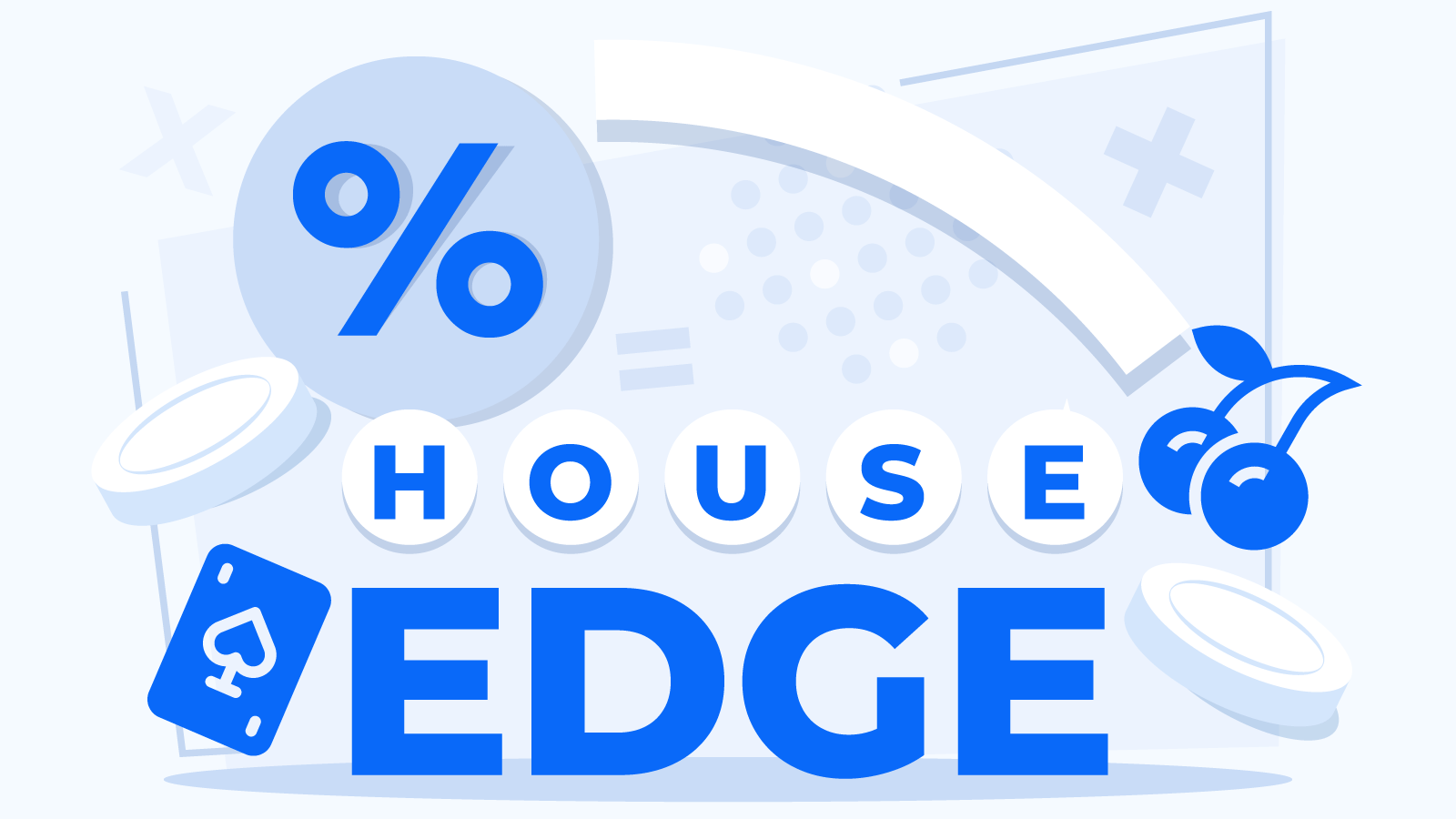
The phrase “the house always wins” is pretty accurate, casinos, after all, are in it to make money, which is why they have something called the house edge to make sure they end up ahead over time.
So why do people still play casinos if the house always wins? The answer lies in the appeal of gambling as a fun and exciting pastime. The house edge doesn’t deter players who enjoy the thrill of the game.
And here’s some good news. Even though the house has the upper hand, understanding how the house edge works can be a game-changer. Getting to grips with it means you’ve got a better shot at walking away with some money in your pocket instead of blowing your entire gambling.
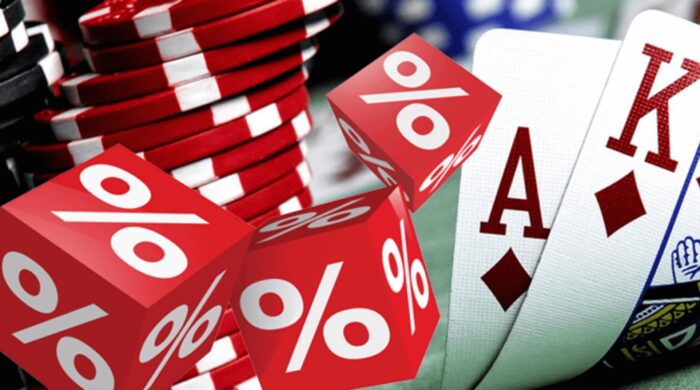
What is The House Edge?
The house edge is essentially the casino’s mathematical edge over players, acting like their profit margin. Unlike other businesses with various influencing factors, a casino’s profit margin is straightforward because it’s entirely based on math.
To illustrate, consider this example: Suppose you place a $10 bet on each of the 37 numbers in roulette (0 through 36). No matter where the ball lands, you win 36 times your bet, which is $360 in this scenario. But since you’ve wagered a total of $370, you’re down by $10. This basic principle applies to all gambling games and has been the case for centuries. Because of this, casinos don’t need to resort to cheating; the games naturally generate profit for them.
It’s true that not everyone loses – some players do get lucky and leave with more money. However, if they kept playing non-stop, the house edge means they’d likely end up at a loss over time.
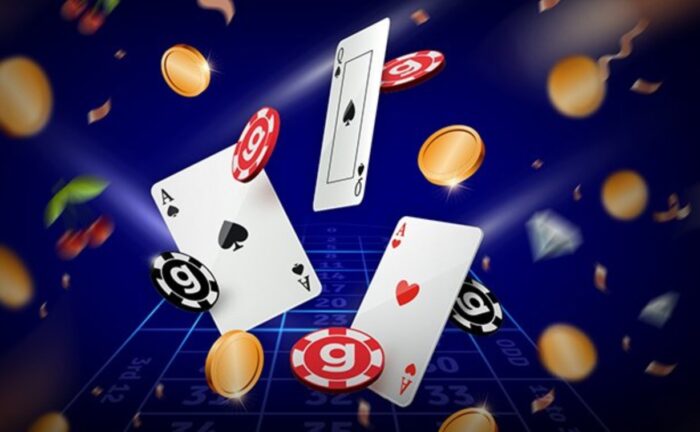
Why Gamble When the Odds Are Against You?
If gambling always resulted in losses, nobody would ever want to play. The key is that casinos don’t need to profit from every single player, which is why the house edge is often kept reasonable.
Take roulette, for instance, where the house edge is about 5.5%. This means that for every dollar wagered, roughly 94.5% is returned to players overall. Of course, this doesn’t mean everyone wins equally; some players hit big jackpots, while others just about break even. But that’s the thrill of gambling – the possibility of striking it rich with minimal effort. This slim chance of winning big is the primary draw for many gamblers, despite knowing that the odds are not in their favor.
Another reason people continue to frequent casinos, despite the ever-present house advantage, is simply because gambling is entertaining. It’s helpful to think of your gambling budget not as an investment but as the cost of enjoying a fun and exciting experience.
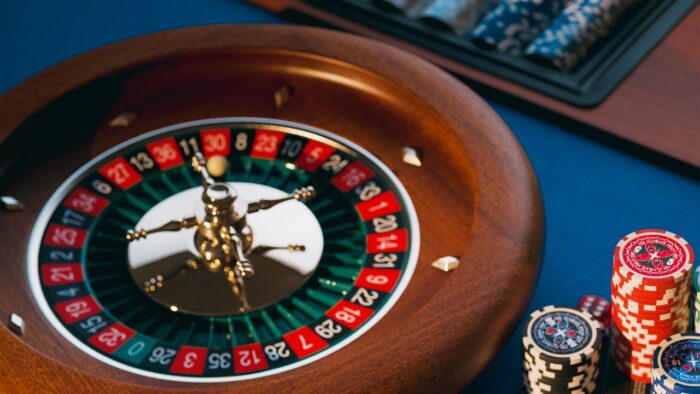
Understanding The House Edge of Different Games
The house edge represents the proportion of money that casinos keep over a period, like a year. This is an average, but it varies across different games and even depends on the specific bets you place. Put simply, your odds of winning can be higher in some games and lower in others. To illustrate this, here’s a rundown of popular casino games and their respective house edges:
- Blackjack: 0.5%
- Craps: 0.8%
- Baccarat: 1.06%
- Roulette: 5.5%
These games, rooted in centuries of mathematical principles, offer varying chances of winning. However, the rise of online casinos has introduced new types of games, where the house edge can vary widely at the developer’s discretion.
Take slot machines, for example. Their house edge can range from a modest 1% to a steep 15%. In online slots and other online casino games, the house edge could theoretically be any percentage, even 100%. But you’re unlikely to encounter such extreme cases, as casinos don’t intend to push away players by making games impossibly hard to win.

House Edge in the Online Gambling World
Just like their land-based counterparts, online gambling platforms don’t need to rig games. Each game is programmed to pay out a specific percentage of the stakes. In online gaming, this is commonly referred to as the Return to Player (RTP).
RTP is essentially the flip side of the house edge. It indicates the percentage of the total money wagered that gets paid back to players. Every slot game has its own RTP, and some even allow the casino operator to set this figure.
Some online games offer players a choice in their winning frequency. You can opt for a high RTP with smaller prizes or a low RTP with larger jackpots. It boils down to whether you’re after significant wins or content with smaller, more frequent payouts.
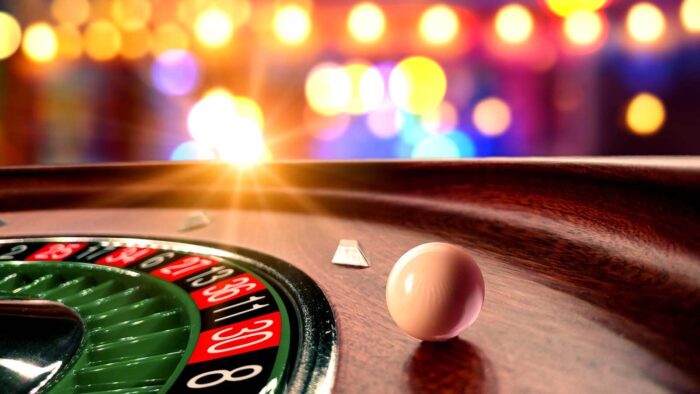
Leveraging the House Edge to Your Advantage
The difference between a house edge of 5% and 2% might seem trivial, but it’s substantial. For occasional gamblers, this may not be noticeable, but regular gamblers will feel the impact.
Consider this: an average gambler in Las Vegas spends about $5,000 annually on gambling. At a venue with a 5% house edge, you’re likely to lose $250, whereas with a 2% edge, the loss is reduced to $100. That’s a $150 difference, which could be reinvested in more gambling, increasing your chances of winning.
However, it’s not just about picking a casino with a lower edge. Your choice of games, as well as a sound bankroll management strategy, are crucial. Avoid betting all your money at once. Instead, plan your gambling budget wisely. This not only improves your chances of winning but also extends the time you can enjoy your favorite pastime.

Final Thoughts
The world of casino gaming is a fascinating blend of chance, strategy, and entertainment. Whether you’re rolling the dice in a land-based casino or clicking away in an online game, the house edge plays an important role in shaping your gaming experience. It’s a reminder that while casinos are designed to be profitable, they also offer a realm of possibilities for those who play smartly.
Understanding the house edge in different games is not just about statistics; it’s about making informed choices that align with your entertainment goals and budget. Remember, gambling is not just a pursuit of winnings; it’s about the thrill of the game, the joy of taking a chance, and the excitement of potentially hitting it big. Keep these insights in mind, and most importantly, have fun responsibly.











